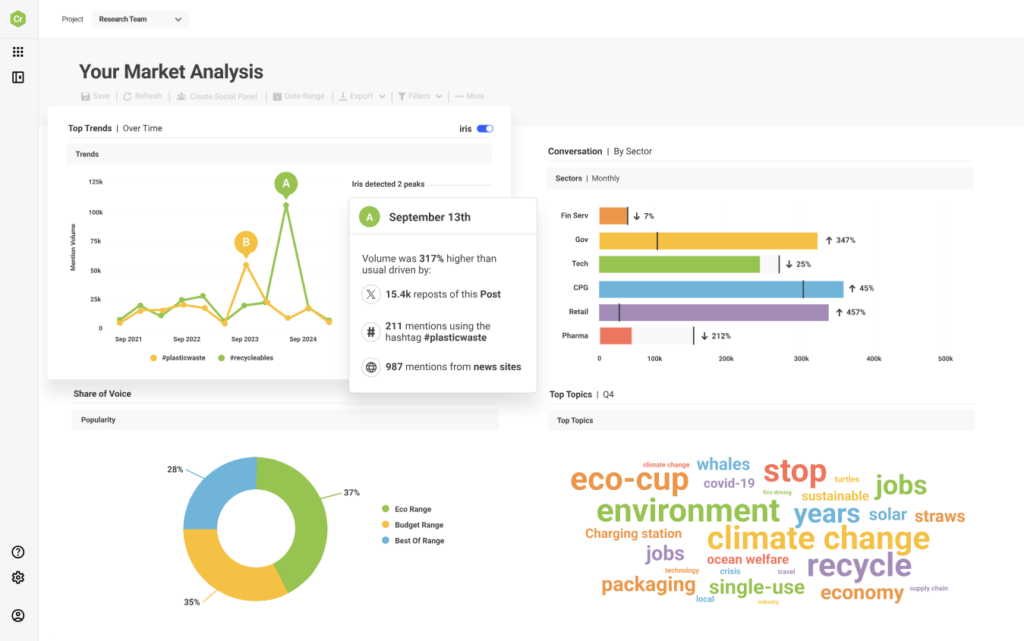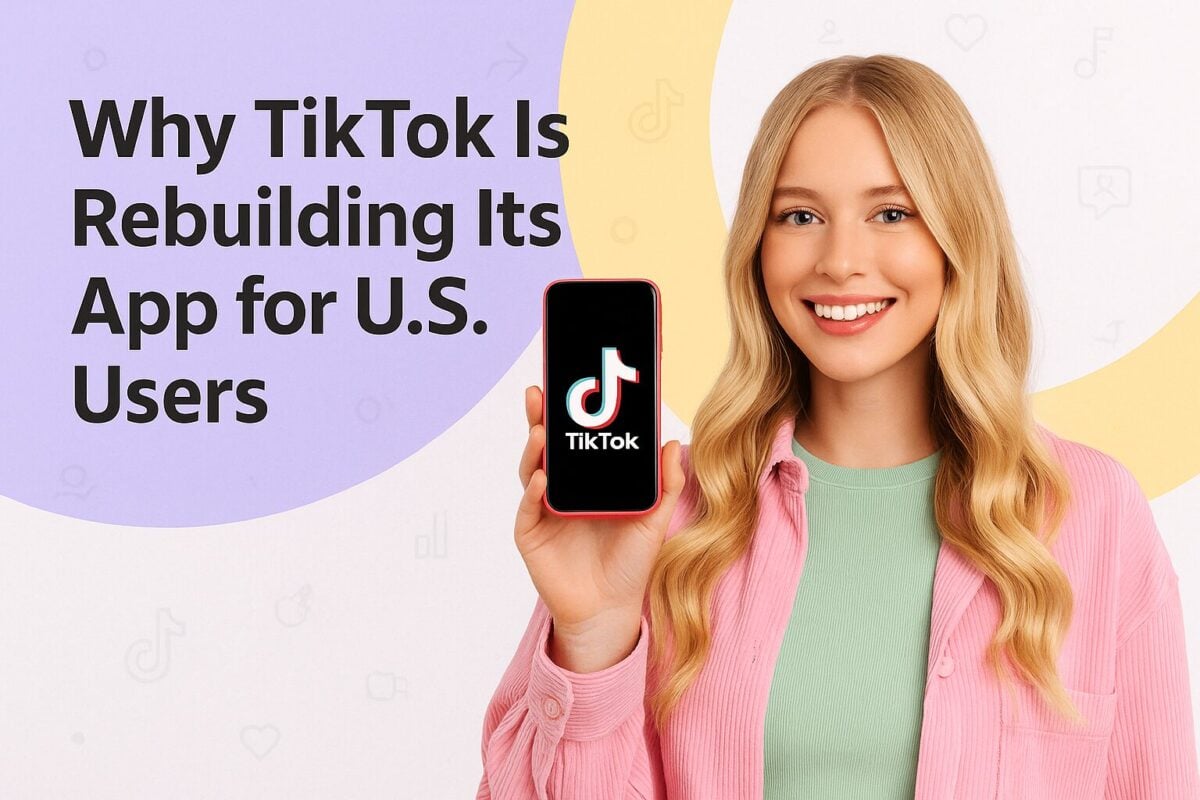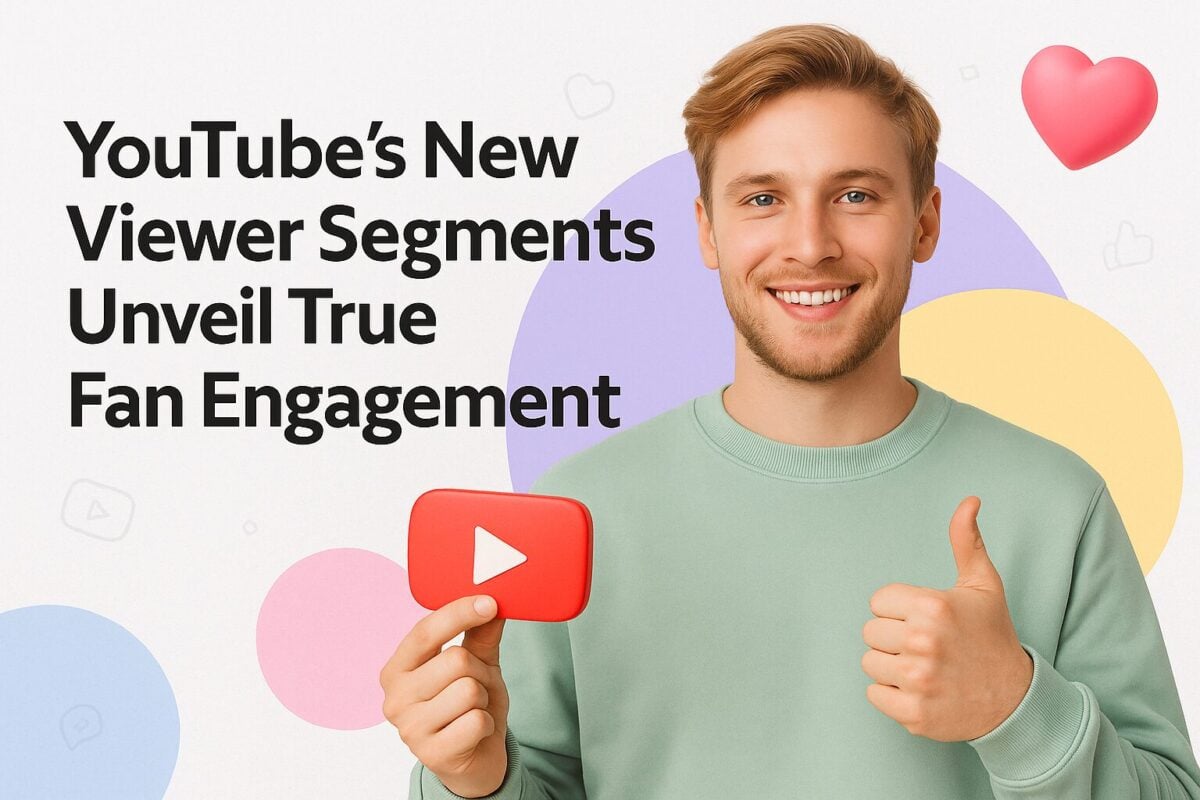Ever wondered what people are saying about your brand on Instagram? Or what types of conversations are trending at the moment? These questions can reveal valuable insights to inform how you market your brand and engage with your community. And Instagram listening can provide you with the answers you need.
So what’s Instagram listening all about and how can your business benefit from it? More importantly, how can you perform Instagram listening? Read on to find out everything you need to know.
What is Instagram Listening?
Instagram listening is the process of monitoring conversations taking place related to your brand within Instagram. It involves keeping track of relevant keywords and hashtags and analyzing the posts made with those keywords and hashtags. While many brands may conduct Instagram listening to discover posts about their brand, you may also track conversations about specific topics and competitors that are relevant to you.
Based on this, you can get an accurate idea of how people feel about your brand and whether there are any pain points that you’ve failed to address. This will then help you come up with an appropriate solution and engage your customers in a timely manner. Instagram listening also helps you uncover the latest trends in your industry and see how your competitors are doing.
How Instagram Listening Can Benefit Your Business
So how exactly will your business benefit from Instagram listening? Let’s explore some of the main ways in which you can use Instagram listening for your business.
1. Understand Your Audience on a Deeper Level
Every brand wants to be able to connect with their target audience. But that can’t happen unless you have a deep understanding of the audience and what they want. Instagram listening can reveal insights to better understand the needs and motivations of your audience. Based on the conversations, you’ll be able to find out what they want from your brand, what their interests are, what pain points are still unmet, and so on.
These insights can then be used to inform your business decisions and marketing strategies. You may be able to make improvements in the way you launch your next Instagram ad campaign, for starters. Or you may go so far as to use those insights to make product improvements or expand your product line to accommodate any unmet customer needs.
So for example, by looking at the following conversations on a skincare creator’s post, a skincare brand may be able to learn more about their audience’s skincare regimes and preferences. They may also be able to tell that some people are motivated to buy based on the packaging, which may compel them to redesign their packaging to draw in more customers.
2. Gain Valuable Competitive Insights
What are your competitors doing on Instagram? And what are people saying about them? More importantly, how can you make sure you stand apart from them? This is another area in which Instagram listening can provide valuable insights.
You can use Instagram listening to understand what types of conversations are taking place around your competitor brands. Beyond looking at the types of content they post and the campaigns they run, you can use listening to assess how people are responding to those efforts. You can also track branded hashtags and competitor mentions to look for complaints and reviews that could reveal a lot of information on what you could do better.
For example, if a competitor for McDonald’s tracked the branded hashtag #mcdonalds, they’ll be able to see what people are saying about the company. They can look deeper into the conversations taking place in the posts made with those hashtags. This can then help them identify the biggest pain points that McDonald’s has failed to address and what people are expecting from the company.
3. Discover Opportunities to Engage
Customers love it when brands engage with them on a personal level. It makes them feel heard and noticed, which will make them feel valued. As such, they may feel a stronger bond to your brand and want to remain loyal customers. That’s exactly why Instagram listening is so invaluable as it helps you uncover relevant engagement opportunities.
Sure, you may already be engaging with the comments on your own Instagram posts or responding to your messages. But what about those engagement opportunities outside of your own account? Don’t forget that there are many conversations taking place about your brand across Instagram, which is where you need to engage.
Instagram listening can reveal posts and comments in which your brand is mentioned but not tagged. Similarly, it can also reveal conversations that may be very relevant to your brand even if it’s not specifically mentioned. All of these offer an excellent opportunity to jump in and engage your audience. You may provide answers to their questions, thank them for mentioning them, or simply acknowledge them.
In the following post from a food influencer, many of the comments asked about the noodles being used. The influencer responded and mentioned a specific brand of noodles without tagging the brand. This would be a great opportunity for the brand to jump in and direct the audience on where to find their noodles.
4. Take Your Instagram Customer Service to Another Level
On a similar note, Instagram listening can also help you be more proactive about providing customer service. You can set up alerts to get instantly notified when people are sharing complaints or asking questions. This will allow you to quickly come up with an appropriate answer or resolution so you can take your Instagram customer service to another level.
Many of those complaints and questions may be urgent, which would mean they need a quick response. Keeping your customers waiting too long could result in frustration, which does nothing for your brand reputation and customer experience. On top of this, many of those questions may have been an opportunity to guide purchase decisions. Without a prompt response, those customers may feel compelled to look elsewhere for what they need.
So waiting until the next day to respond may not be the most ideal solution. In some cases, you may have even missed those important comments, which would mean that the customer never got a response. But when you take advantage of Instagram listening, you can make sure that you never miss a customer support query and that you instantly get notified so you can swiftly respond.
For example, Drunk Elephant is very responsive to customer queries in their Instagram posts. Whether it’s a question about where to find the products or how specific skincare products should be used, the brand is quick to provide an informative and helpful answer. They don’t just come up with a generic copy-pasted response. Instead, they take the time to personalize each response and provide a relevant answer.
5. Stay on Top of the Latest Trends
Instagram sees a new trend popping up every other week. Whether it involves a fun challenge or a popular song, participating in these trends tends to be a great way to connect with your audience and expand your reach. But keep in mind that your target audience may not necessarily enjoy each and every new trend that comes up on the platform. With Instagram listening, you can see which trends are popular with your audience and which ones you should avoid.
When everyone started sharing their “How it started vs. how it’s going” photos on Instagram, Ford decided to jump in on the action. The company shared a quick video showcasing some of the first Ford vehicles followed by some of the latest models.
6. Discover Ideas and Inspiration for New Content
What types of content resonate with your audience? What answers are they looking for related to your industry? Are they asking for specific types of content? Instagram listening can answer these questions and provide inspiration for new content.
It will be able to show you some of the common questions and concerns that people have that you might be able to address through your content. The best part about Instagram listening is that you can go beyond your own Instagram account and check out conversations across the platform to find those content ideas.
For example, you may be able to go through the comments in an influential creator’s post related to your industry and see if people are bringing up any concerns and questions. Similarly, you can also check out the comments on your competitors’ posts to understand what types of content people are looking for.
Getting Started with Instagram Listening
Now that you know exactly how to use Instagram listening to your brand’s advantage, you may be excited to get started. So how exactly do you do that? Here are the essential steps on how to get started with Instagram listening.
Step 1: Start with a Purpose
First, have a clear idea of why you’re conducting Instagram listening. What are your goals? What insights do you want to gain from your listening efforts? This will help you get a better idea of what you’re listening for, which will then give you a better sense of direction.
For instance, you may be using it to gain insights for an upcoming campaign or you may want to find out what product improvements you can make. While Instagram listening can also be conducted on an ongoing basis, trying to collect and analyze each and every conversation can get noisy pretty fast. Having a clear idea of your purpose will help you filter out the noise and focus on the conversations that are important to you.
Step 2: Decide on a Listening Timeframe
Next, decide on how long you’re going to listen for. Will it be for just a month or for an entire quarter? Perhaps you’ll start listening once a new product launches and continue listening for a couple of months to see how people are responding to it. Setting a clear timeframe is another essential step to organize your Instagram listening efforts so you don’t get overwhelmed, and you only focus on the conversations that are relevant for that specific campaign.
Step 3: Choose the Right Tools
One of the most crucial steps is deciding on which listening tool to use. Most of the social listening tools available today come with listening capabilities for Instagram. But the right tool for you depends on your unique needs and your budget. Brandwatch, Brand24, Agorapulse, and Sprout Social are some of the leading social media tools that come with powerful listening capabilities.

It’s important to find a listening tool that will specifically serve the intended purpose. So, for instance, if you’re conducting Instagram listening to monitor your brand reputation, you’ll need to find one that offers robust sentiment analysis and real-time alerts. Similarly, if you’re using Instagram listening to identify influencers for your next campaign, you’ll need a tool that specializes in influencer identification.
Step 4: Listen and Analyze
Once you have your tool finalized and you know your purpose, it’s time to start your listening. You may begin by listening for brand mentions and other brand-specific keywords and hashtags that are relevant to your campaign. If your purpose is competitor analysis, you’ll need keywords specific to the competitor brand you want to monitor.
Then once the tool pulls up the relevant conversations, you’ll need an analyst to closely analyze the results for insights that you can use. Depending on your resources, you may have an entire team of analysts to perform this analysis and provide you with valuable insights for your brand.
You can then turn these insights into action that will yield positive results for your brand. To do this, you’ll likely need to come up with a solid strategy incorporating the insights that were extracted through Instagram listening. Make sure to record any changes in your performance before and after implementation so you can understand how those listening efforts paid off in the long run.
Achieving Brand Growth through Instagram Listening
Instagram listening provides you with valuable insights into your audience and your industry, which can then inform how you market and present your brand. It may even be able to inform larger business strategies such as product development and customer service. So make the most of it to grow your brand and sustain that growth.
Frequently Asked Questions
What is Instagram listening?
Instagram listening involves tracking and analyzing conversations taking place related to your brand within Instagram.
What is monitoring on Instagram?
Monitoring on Instagram is when you continuously search for Instagram posts that are relevant to your business goals.
How can I benefit from Instagram listening?
Instagram listening helps you understand your audience better, identify trends, assess your competitors’ performance, find content inspiration, and discover opportunities for engagement.
What are the best Instagram listening tools?
Brand24, Sprout Social, and Brandwatch are some of the best Instagram listening tools.
How do Instagram listening tools work?
Instagram listening tools search through the platform for keywords, hashtags, and phrases that are relevant to your brand.



